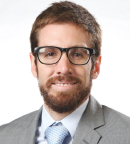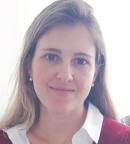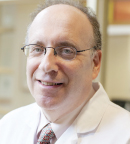

“Health-care systems in low- and middle-income countries need to shift their focus to providing care for older patients with cancer across the spectrum of disease and not simply in acute care settings.”— Enrique Soto Pérez-de-Celis, MD, and Theodora Karnakis, MD
Tweet this quote
Virtually every region and country in the world are experiencing population aging. Although developed regions still have the largest proportion of older persons, the absolute number of older adults is higher in developing regions of the world. Globally, more than 60% of all persons aged 65 now live in low- and-middle-income countries, and, over the next 15 years, the number of older persons is expected to grow faster in developing regions such as Latin America (71% increase), Asia (66%), and Africa (64%) than in North America (41%) or Europe (23%).1
This increase in the older population will have a profound impact on all sectors of society, including the delivery of health-care services, and preparing for the shifts of an aging world is essential to ensure future progress and development. Since noncommunicable diseases, such as cancer, are strongly associated with age, the number of new cancer cases worldwide is projected to increase in parallel with population aging.2
Preparing for an Impending Epidemic
ALTHOUGH POPULATION AGING, and the associated increase in noncommunicable diseases, represents a global challenge, the preparedness of health-care systems to face this impending epidemic is highly variable.
In many regions of the world, older adults already account for the majority of cancer cases and deaths, and this will certainly increase in the coming years.2 Unfortunately, health-care systems in low- and middle-income countries are mainly designed to tackle acute diseases, and many are ill-prepared to provide medical attention to older adults with complex chronic illnesses in need of multidisciplinary care. Therefore, there is an urgent need to expand, improve, and strengthen resources and initiatives aimed at providing care for older patients with cancer.
Several academic medical centers have implemented geriatric oncology clinics aimed at providing specialized care for older adults with cancer. Additionally, training programs aimed at increasing the geriatric competence of the oncology workforce and at preparing dedicated geriatric oncology professionals have been designed and implemented. However, most of these educational and clinical initiatives have been undertaken in high-income countries in Western Europe and North America, with other regions of the world lagging behind in the development of geriatric oncology programs.

Stuart M. Lichtman, MD
The International Society of Geriatric Oncology (SIOG) has made efforts to promote global geriatric oncology, such as fostering an increasing group of national representatives and including sessions about geriatric oncology in low- and middle-income countries at its Annual Meeting. Additionally, SIOG has developed educational activities, both online and in person, designed to educate clinicians from around the world in geriatric oncology. One such initiative is the SIOG Advanced Course in Geriatric Oncology, which aims to train young medical oncologists and geriatricians from around the world to work together using geriatric principles.
Initiatives in Latin America
SEVERAL INITIATIVES have been developed across Latin America to face the challenges of aging and cancer. Currently, four Latin American countries (Argentina, Brazil, Chile, and Mexico) have national representatives to SIOG and are actively working to promote clinical, educational, and research initiatives in geriatric oncology in the region.
GUEST EDITOR
Geriatrics for the Oncologist is guest edited by Stuart M. Lichtman, MD, and developed in collaboration with the International Society of Geriatric Oncology (SIOG). Dr. Lichtman is an Attending Physician at Memorial Sloan Kettering Cancer Center, Commack, New York, and Professor of Medicine at Weill Cornell Medical College, New York. He is also President of SIOG. For more information about geriatric oncology, visit www.siog.org and the ASCO Geriatric Oncology website (www.asco.org/practice-guidelines/cancer-care-initiatives/geriatric-oncology/geriatric-oncology-resources).In Brazil, the Brazilian Oncology Society and the Brazilian Society of Geriatrics have joined forces to increase educational activities in geriatric oncology. The Brazilian Oncology Society conducted a national survey of more than 340 oncologists in the country to assess their knowledge regarding cancer care in the elderly and to gauge their interest in the development of geriatric oncology. The findings of this survey will be presented at the 2017 National Clinical Oncology Congress, which will also include a geriatric oncology track in collaboration with SIOG.
Several clinical initiatives in geriatric oncology have been established in Brazil over the past decade. Since 2012, the Institute of Cancer of the State of São Paulo has created a geriatric oncology program, which employs three full-time geriatricians and provides training in geriatric oncology, as well as additional training for residents in geriatrics and oncology. Since the creation of the program, more than 2,000 older adults have been referred for evaluation by the geriatric oncology team, and 200 of these referrals have led to improvements in treatment decision-making.3 Other institutions across Brazil, such as the Hospital Israelita Albert Einstein, A.C. Camargo Cancer Center, the Federal University of ABC in Sao Paulo; the Instituto de Medicina Integral Professor Fernando Figueira in Recife; and the Hospital das Clínicas in Ribeirão Preto have also created Geriatric Oncology clinics.4,5
In Mexico, the first geriatric oncology clinic (Cancer Care in the Elderly Clinic) was created in 2015 at the Instituto Nacional de Ciencias Médicas y Nutrición Salvador Zubirán in Mexico City.3 This clinic has a shared-care model in which patients undergo a comprehensive assessment by an oncologist, a geriatrician, and other multidisciplinary team members, who then generate a treatment plan and follow the patient throughout treatment.6
Future Challenges
INCREASING THE EVIDENCE BASE supporting the implementation of geriatric oncology initiatives in low- and middle-income countries is a priority. Since health systems in low- and middle-income countries have limited economic resources, research is needed regarding the potential reduction of the long-term health costs of geriatric oncology clinics (such as a reduction in hospitalizations, emergency visits or unnecessary screening, and treatment interventions). Demonstrating the potential role of specialized geriatric oncology services in reducing costs and morbidity could make the implementation of specialized programs for older adults with cancer more attractive to policy-makers in the developing world.
Health-care systems in low- and middle-income countries need to shift their focus to providing care for older patients with cancer across the spectrum of disease and not simply in acute care settings. Regional and global efforts are needed to increase the geriatric competence of the workforce, to design effective health promotion and disease prevention programs for older adults, and to implement interdisciplinary clinical initiatives aimed at reducing the inequalities in cancer care. Organizations such as SIOG are leading the way in integrating a truly global geriatric oncology community, and these global initiatives will certainly play a role in the much-needed implementation of geriatric oncology in developing regions of the world. ■
DISCLOSURE: Drs. Soto Pérez-de-Celis and Karnakis reported no conflicts of interest. Dr. Soto Pérez-de-Celis is supported by a Long Term International Fellowship From the Conquer Cancer Foundation of ASCO.
REFERENCES
1. United Nations, Department of Economic and Social Affairs, Population Division: World Population Ageing 2015. Available at http://www.un.org/en/development/desa/population/publications/pdf/ageing/WPA2015_Report.pdf. Accessed July 18, 2017.
2. Ferlay J Soerjomataram I, Ervik M, et al: GLOBOCAN 2012: Estimated Cancer Incidence and Mortality and Prevalence Worldwide in 2012: IARC CancerBase No. 11 Lyon, France, International Agency for Research on Cancer, 2013.
3. Soto Pérez-de-Celis E, Navarrete-Reyes AP: Tailored care for older patients with cancer in Latin America: An imminent challenge. British Geriatric Society Blog. Available at https://britishgeriatricssociety.wordpress.com/2015/07/02/tailored-care-for-older-patients-with-cancer-in-latin-america-an-imminent-challenge/. Accessed July 18, 2017.
4. Karnakis T: Geriatric Oncology: Brazil 2014–2015. Available at http://www.siog.org/files/public/2015_brazil_karnakis_nr_report. docx. Accessed July 18, 2017.
5. Karnakis T, Gattás-Vernaglia IF, Saraiva MD, et al: The geriatrician’s perspective on practical aspects of the multidisciplinary care of older adults with cancer. J Geriatr Oncol 7:341-345, 2016.
6. Soto-Perez-De-Celis E, Navarrete-Reyes A, Vazquez-Valdez O, et al: Development and implementation of a multidisciplinary geriatric oncology clinic in Mexico. J Clin Oncol 34:e21519, 2016.

